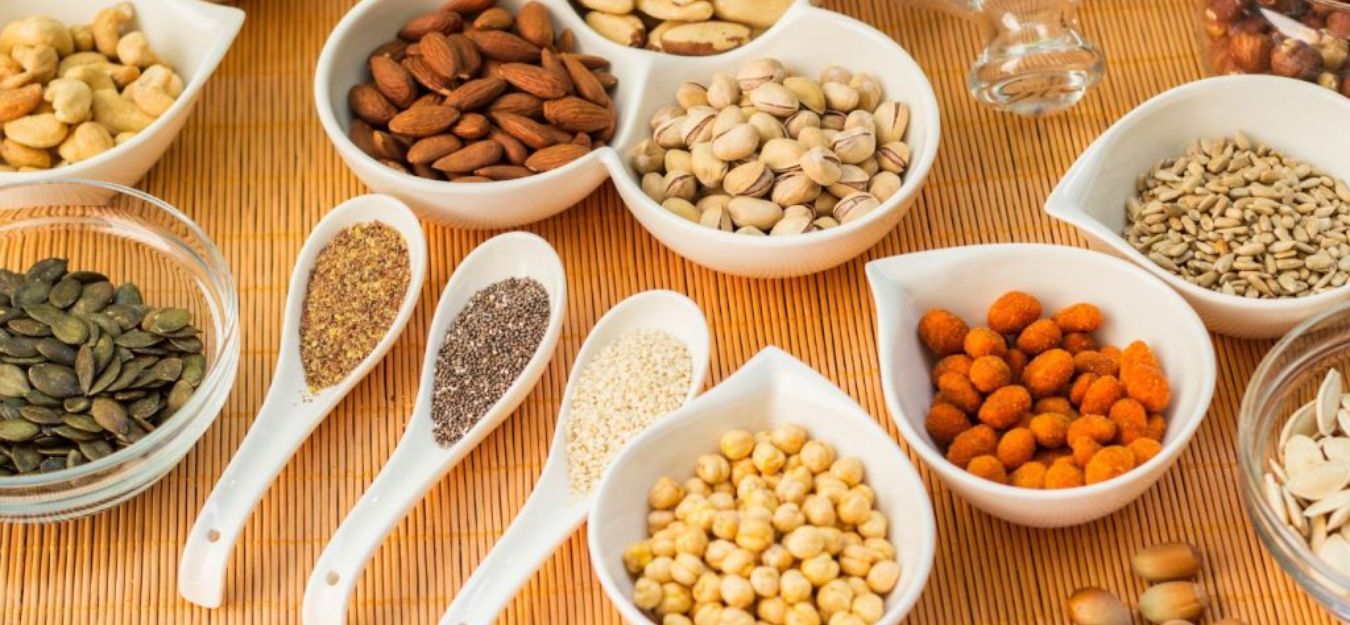Gut-Friendly Eating
Ulcerative colitis is a chronic disease that is classified as an inflammatory bowel disease. It occurs when the lining of the large intestine (colon) becomes inflamed, and ulcers develop, leading to symptoms including abdominal cramping, bleeding, and diarrhea. While the lower part of the large intestine and rectum are usually affected, ulcerative colitis can affect the entire colon. While there is no cure for ulcerative colitis, it can generally be controlled through medication, diet and lifestyle changes. Below we’ll discuss the foods to avoid with ulcerative colitis, its symptoms, and what an ulcerative colitis diary is.
Ulcerative Colitis Symptoms
Ulcerative colitis symptoms can range in severity from mild to severe and can change over time. When symptoms are active, it’s called a colitis flare; when they’re under control, it’s considered in remission.
Mild ulcerative colitis symptoms may include:
- Mild diarrhea, up to four times per day (may be bloody).
- Mild abdominal pain and cramping.
- Straining with bowel movements.
- Episodes of constipation.
Moderate ulcerative colitis symptoms may include:
- Frequent bloody diarrhea, more than four times daily.
- Weakness or tiredness (due to anemia).
- Mild to moderate abdominal pain and cramping.
- Fever (low-grade).
Severe ulcerative colitis symptoms may include:
- Very frequent bloody diarrhea, more than six times daily.
- Weakness or tiredness (due to anemia).
- Severe abdominal pain and cramping.
- Rapid heartbeat.
- Fever.
- Weight loss (can happen quickly).
Additionally, some people suffering from ulcerative colitis develop inflammation outside the colon. This inflammation can affect the large joints of the body, including the knees and hips, leading to joint swelling, pain and a restricted range of motion. Additionally, ulcerative colitis can affect the skin, eyes and bile ducts, leading to signs and symptoms, including itchy eyes, red spots on the skin and blood test abnormalities.
The Ulcerative Colitis Diary
One of the easiest things you can do is to pay attention to what you eat and drink and closely monitor how your ulcerative colitis symptoms react. Tracking your daily food and drink consumption in a food diary can help you identify any trigger foods that may be causing your colitis flare-ups. Once you can identify your trigger foods, be sure to avoid them. Below we’ll discuss some foods that commonly trigger ulcerative colitis symptoms.
11 Foods You Should Exclude if You Have Ulcerative Colitis
Some of the most common trigger foods for ulcerative colitis symptoms include the following:
- Whole grains. High-fiber, whole-grain bread and cereals can be hard to digest and trigger a colitis flare. Instead of whole grain products, opt for enriched white flour products that are easier on the digestive system.
- Gluten. Gluten is a protein found in wheat, barley and rye that can sometimes trigger ulcerative colitis symptoms. A gluten-free diet may help to reduce symptoms and colitis flare-ups.
- Nuts and seeds. These are very hard to digest and can aggravate ulcerative colitis symptoms, so avoiding them is best to minimize symptoms.
- Dairy products. Many people with ulcerative colitis are lactose intolerant, preventing them from adequately digesting lactose, which is the sugar in dairy products. This leads to symptoms such as diarrhea and severe abdominal cramping and pain. Reducing the consumption of milk, yogurt, cheese and other dairy products can help to reduce symptoms.
- Trans and saturated fats. Typically found in red and processed meat, these can trigger ulcerative colitis symptoms. Instead, opt for leaner cuts of meat, fish and olive oils, higher in healthier fats, such as omega-3 fatty acids.
- Caffeine products. Caffeine found in coffee, tea, energy drinks and chocolate speeds up the movement of waste through the colon leading to more frequent bathroom trips and aggravation of ulcerative colitis symptoms. Opt for caffeine-free products instead to minimize symptoms.
- Alcohol. All types of alcohol can trigger ulcerative colitis symptoms because it stimulates the intestine, leading to symptoms such as diarrhea in some individuals with ulcerative colitis. Reducing or avoiding alcohol can help to minimize symptoms.
- Certain vegetables. High-fiber veggies, including cabbage, broccoli, onions, celery and brussel sprouts, can cause ulcerative colitis symptoms such as abdominal cramping, bloating and gas.
- Spicy foods. Spicy foods such as peppers and sauces can trigger ulcerative colitis symptoms and may worsen existing symptoms.
- Sugary foods. Pastries, candies, fruity drinks and other sugary foods can trigger a colitis flare-up and should be avoided.
- Carbonated drinks. These types of drinks have carbonic acid that irritates the digestive tract, which can trigger ulcerative colitis symptoms. Additionally, carbonated drinks often produce gas which can worsen colitis symptoms. Instead of carbonated drinks, opt for water and herbal teas.
Ulcerative Colitis Awareness
Ulcerative colitis is an inflammatory bowel disease that causes colon and rectum inflammation, leading to unpleasant symptoms. Avoiding certain foods in your diet can help to control colitis flare-ups. However, it’s important to remember to speak to your doctor if you start severely restricting your diet to ensure you get all the nutrients your body needs to thrive. In addition to avoiding these foods with ulcerative colitis, regularly exercising and reducing stress can also help control your symptoms.
Article Resources
- Medical News Today – Foods to Eat and Avoid with Ulcerative Colitis
- Colorectal Surgical Associates – The Worst Foods for Those with Ulcerative Colitis
- WebMD – Ulcerative Colitis: Managing Triggers and Flares
- Mayo Clinic – Ulcerative Colitis Flare-ups: 5 Tips to Manage Them
- UpToDate – Patient Education: Ulcerative Colitis (Beyond the Basics)

